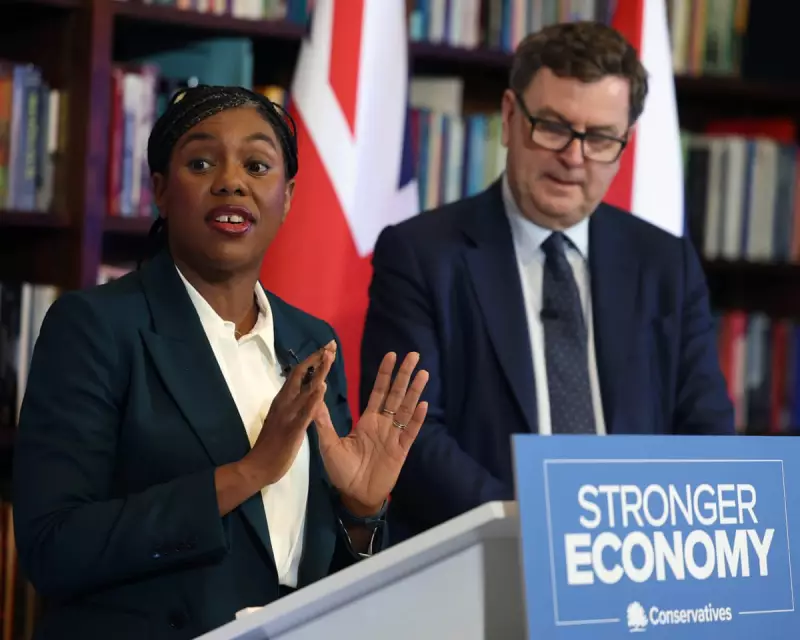
Westminster became the stage for competing political visions on Tuesday as the Conservatives and Reform UK held simultaneous press conferences just half a mile apart in central London. The events saw Business Secretary Kemi Badenoch and Reform leader Nigel Farage presenting their parties' economic policies to largely indifferent audiences.
The Tory Vision: £47bn in Welfare Savings
At the British Academy, Kemi Badenoch appeared alongside Shadow Chancellor Mel Stride in a cramped annexe barely large enough for three rows of chairs. The setting featured what has become a trademark display of four Union Jack flags behind the podium, reflecting the current era of competitive patriotism.
Badenoch launched a pre-emptive strike against Labour's upcoming budget narrative, dismissing claims that Brexit, energy prices and Trump-era trade tariffs had damaged the economy. "Rachel Reeves will tell you a story next week," she declared, insisting this narrative was entirely fictional.
The centrepiece of the Tory proposal involved £47 billion in savings from the welfare budget. This would be achieved primarily by maintaining the controversial two-child benefit cap and implementing additional benefit cuts that Badenoch declined to specify, citing confidentiality concerns.
Mel Stride's Credibility Problem
Mel Stride followed with supporting arguments that highlighted what critics called a significant credibility gap. The Shadow Chancellor emphasised that the welfare budget was excessively high, despite having served as Work and Pensions Secretary himself during a period when benefits spending increased by 20% to record levels.
Stride reinforced Badenoch's position on tax thresholds, describing any freeze as "the greatest betrayal" - despite the Conservatives having implemented exactly such a freeze for seven years starting in 2021. Both politicians expressed disappointment that Labour had abandoned plans to increase income tax by 2%, removing a key attack line from their arsenal.
Reform UK's Alternative Fantasy
Meanwhile, Nigel Farage appeared with Zia Yusuf elsewhere in Westminster to present Reform's budget proposals, which suggested Dicky Tice's days as chancellor-designate might be numbered. Their plan included drastically reducing foreign aid to bare minimum levels and increasing NHS surcharges for foreigners.
Farage proposed stopping all universal credit payments to foreign and EU nationals, expressing confidence that the EU wouldn't retaliate with trade wars due to his negotiating prowess. The proposals were described by observers as bordering on insanity, with Farage apparently believing Brussels would "crumple" when confronted with his demands.
Political Theatre or Serious Policy?
The competing events highlighted the strange political moment Britain finds itself in - three and a half years from the next general election, yet already immersed in campaign-style politics. News organisations sent reporters primarily in case someone said something particularly foolish, rather than expecting substantive policy announcements.
During a desultory question and answer session, Badenoch's responses grew increasingly contradictory. She claimed Reform was both a left-wing party and guilty of copying Tory policies, argued that austerity hadn't gone far enough, and suggested Labour shouldn't blame the Tories for the economic inheritance of 2024 while defending the Tories' right to blame Labour for their 2010 legacy.
The day's events concluded with Labour leader Keir Starmer reportedly admonishing his cabinet to stop briefing against each other about the budget - despite being largely responsible for those same briefings. As one observer noted, the Conservative party currently represents "not a government in waiting, but an irrelevance" in British politics.






